
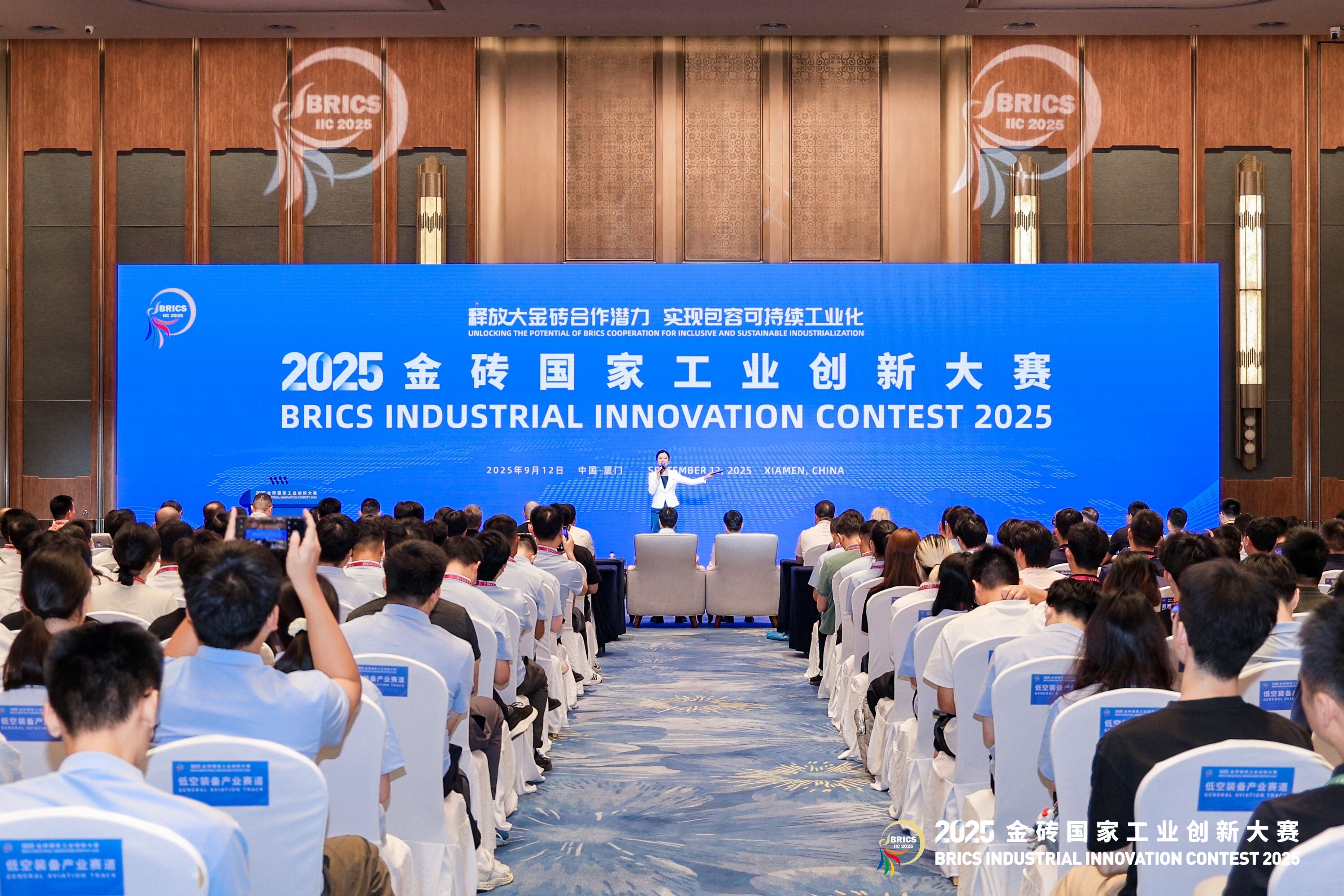
Recently, the BRICS Industrial Innovation Contest, jointly organized by the BRICS Partnership on New Industrial Revolution Innovation Base and the International Economic and Technical Cooperation Center of China’s Ministry of Industry and Information Technology, was successfully held. As a key initiative to implement the BRICS Partnership on the New Industrial Revolution, the contest has been held annually since its inception in 2020. Over the past six years, it has grown into an international platform for presenting cutting-edge achievements and strengthening cooperation in the new energy sector among BRICS countries.
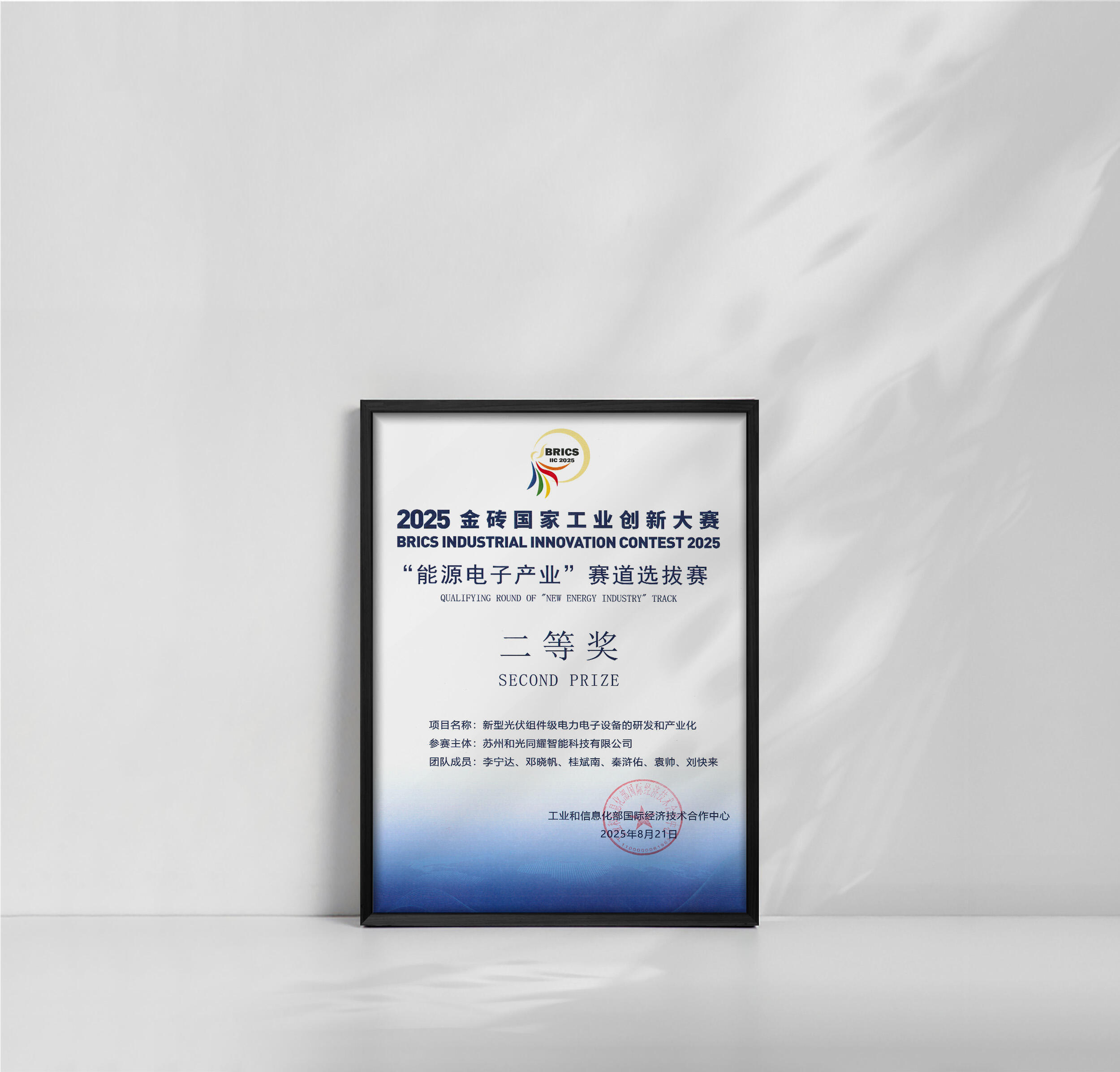
This year’s contest focused on core new energy areas, including photovoltaics, new energy storage, photovoltaic hydrogen production, and solid-state batteries. Since its launch in June, it has attracted thousands of innovative projects worldwide. AndSolar stood out with its pioneering solutions in the module-level power electronics (MLPE) sector and won the Second Prize. This honor not only represents strong recognition of AndSolar’s technological capabilities but also marks an important step in the company’s journey onto the international stage.
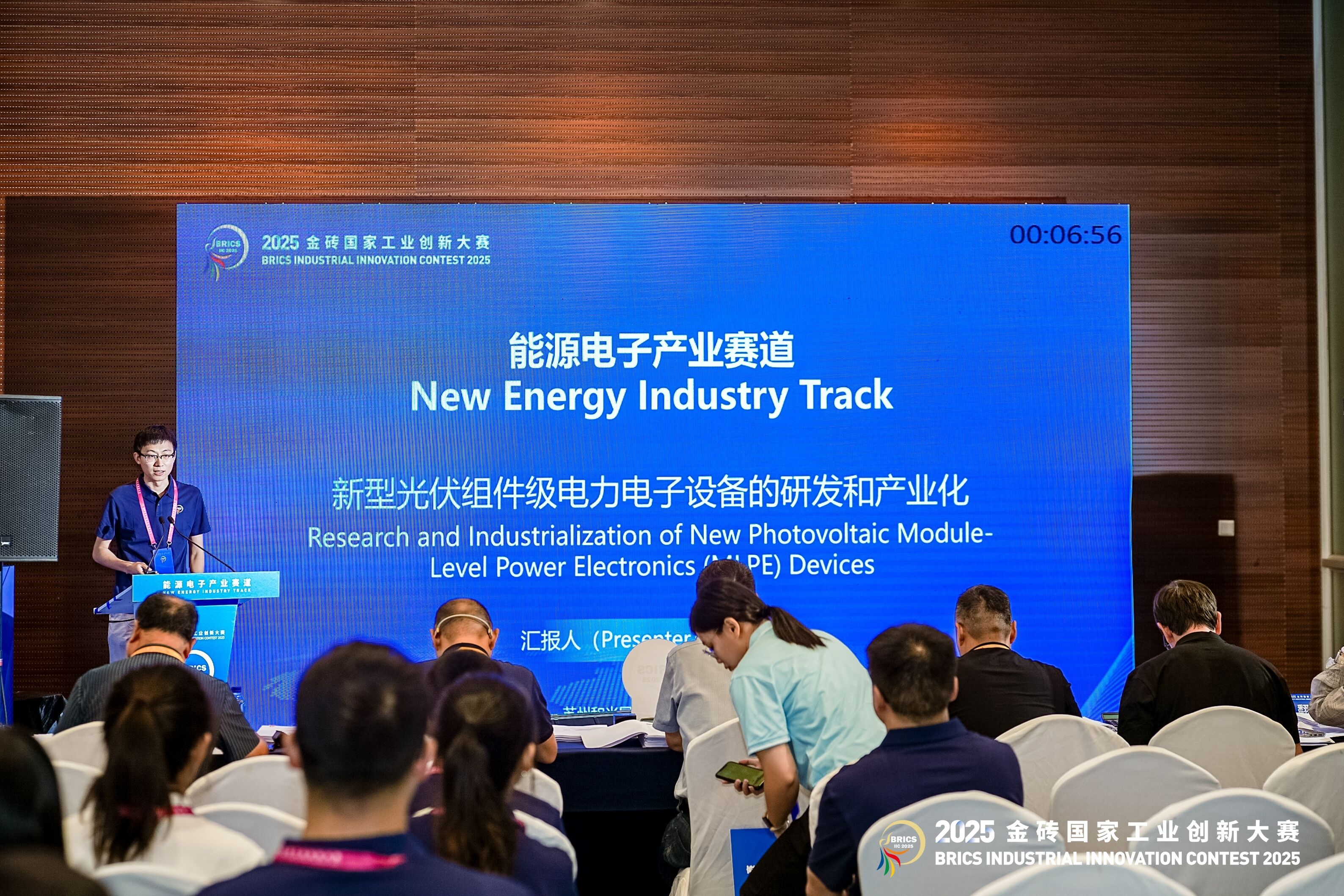
The BRICS countries—Brazil, Russia, India, China, and South Africa—form one of the most representative cooperation mechanisms among emerging economies. With broad complementarities across economics, industry, energy, and technology, the five countries have stepped up their collaboration in recent years in areas such as green transition, digital development, and new energy innovation, making significant contributions to global sustainable development.
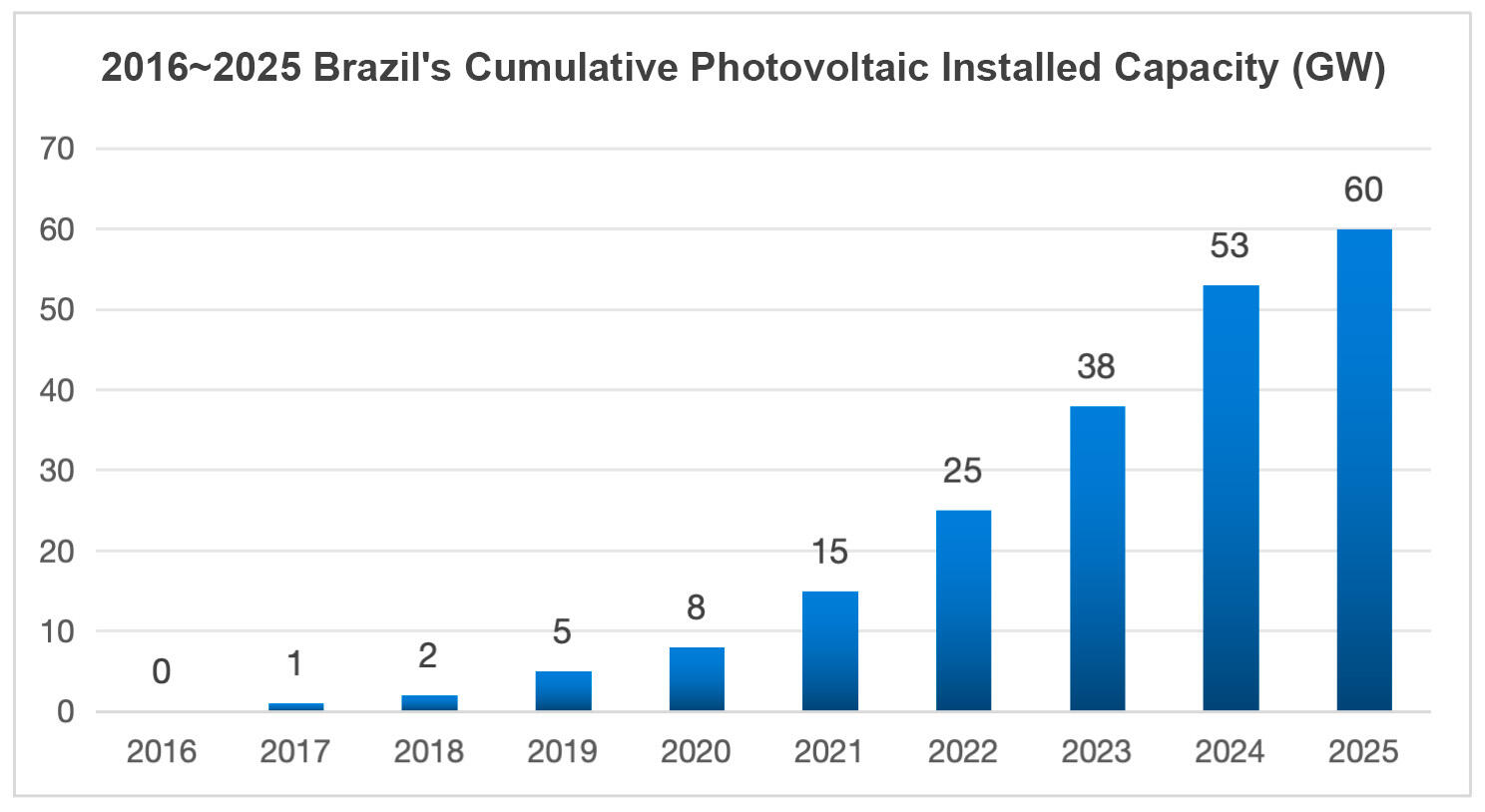
As a key BRICS member, Brazil is rapidly emerging as an important market in the global energy transition. In recent years, supported by favorable policies and industry incentives, Brazil’s photovoltaic industry has experienced remarkable growth and demonstrated strong momentum. According to the latest data from the Brazilian Solar Energy Association (ABSolar), by the end of July 2025, Brazil’s cumulative installed PV capacity had reached 60 GW, accounting for 23.5% of the country’s total installed capacity. Solar energy has become Brazil’s second-largest power source after hydropower, nearly doubling within just a few years and unlocking the market potential.

At the same time, the rapid growth in installed capacity has raised increasing concerns about safety. In 2025, Brazil issued the standard ABNT NBR 17193:2025, which mandates that all building-mounted photovoltaic systems must be equipped with rapid shutdown functionality, ensuring that system voltage is reduced to a safe level within 30 seconds. This underscores Brazil’s strong emphasis on safety in its energy transition.
Winning the Second Prize at the BRICS Industrial Innovation Contest is not only a recognition of AndSolar’s innovation capacity but also a powerful demonstration of the company’s determination to expand globally and contribute to the industry.
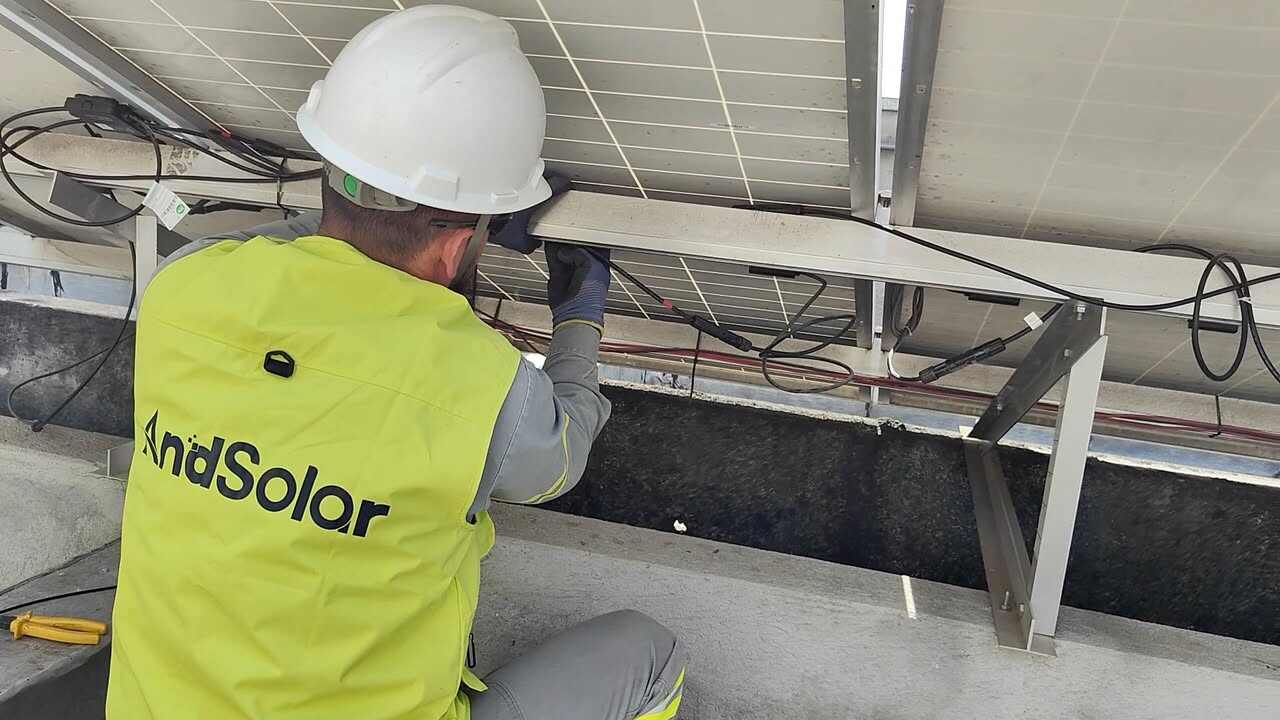
In August this year, AndSolar showcased its PV Module-level Precise Management Solution at the Intersolar South America exhibition in São Paulo, where the solutions have already been successfully implemented in several distributed PV projects. With outstanding safety and performance, they have attracted wide attention and received positive feedback from the market.

Building on the momentum of international collaboration fostered by the BRICS framework, AndSolar is accelerating its integration into the global new energy ecosystem—continuing to drive photovoltaic systems toward safe, smart, and efficient development.